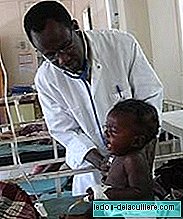
The main cause of mortality of babies in sub-Saharan Africa in their first year of life is malaria, but there are good expectations for this to change. A study conducted by the Hospital Clínic de Barcelona and the BBVA Foundation in Manhiça (Mozambique), reveals that a new intermittent treatment with sulfadoxine-pyrimethamine reduces clinical malaria cases in infants by 22.2%.
Treatment consists of administering the drug every two to three months to prevent babies from contracting the infection. The advantage of this treatment is that a very economical drug is administered (20 cents of treatment) and is also very well tolerated, so it can be applied as prevention.
To obtain these pleasant results, they studied more than 1,500 Mozambican babies who were given antimalarial treatment or a placebo when the babies went to the center to receive routine vaccinations, at three, four and nine months of age. After the follow-up of the babies to whom the treatment was applied, they found that malaria cases were reduced by 22% and hospital admissions for other causes also decreased by 19%, so they think it can be useful in addition for the prevention of other infectious diseases.
In a few months, studies by other members of the international consortium that was created to evaluate intermittent preventive childhood treatments will be completed, including nine African countries, five European countries, the US, Australia and Papua New Guinea.
In September, WHO will meet to analyze all the consortium trials and will decide on the treatment recommendation. If approved, it can be applied in less than a year, but in the meantime strategy studies are being carried out for pregnant women.












